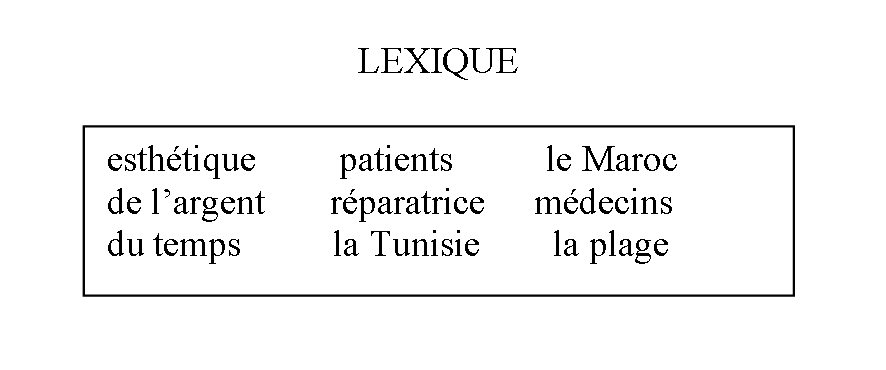Which of the following is NOT a conjunctive adverb?
a) improved
b) incidentally
c) then
d) on the other hand
a) improved
You might also like to view...
After they heard the number, subjects began counting backward by threes (so they couldn't repeat the syllable). After only 18 seconds of delay, their memory scores fell to zero. After 18 seconds without rehearsal, the short-term memories were gone forever! Keep this in mind when you get only one chance to hear important information. For example, if you are introduced to someone and the name slips
out of STM, it's gone forever. Of course, you could try saying something like, "I'm curious, how do you spell your name?" Unfortunately, the response is often an icy reply like, "B-O-B S-M-I-T-H, it's really not too difficult." To avoid embarrassment, pay careful attention to the name, repeat it to yourself several times, and try to use it in the next sentence or two-before you lose it. Elaborative rehearsal, which makes information more meaningful, is a far better way to form lasting memories. Elaborative rehearsal links new information to memories that are already in LTM. When you are studying, you will remember more if you elaborate, extend, and think about information. As you read, try to frequently ask yourself "why" questions, such as, "Why would that be true?" Also, try to relate new ideas to your own experiences and knowledge. Which of the following ideas would the author probably recommend as a way to improve memory? a. Learn new facts as independent of what has been learned earlier. b. Learn new information just before going to bed. c. Repeat someone's name immediately after being first introduced. d. Do memory work after a long day of studying.
¿Qué hago? Raúl is talking to his friend José about work. Fill in the blanks with por or para.? Laura está muy enferma. Voy a pasar _______________ su casa.?
Fill in the blank(s) with the appropriate word(s).
Use a word from the lexique to complete each sentence. You will not use all of the words

1. Le tourisme médical s’est récemment développé parce qu’on peut économiser (save) _______________ en quittant l’Europe de Ouest pour certains services médicaux.
2. _______________ est une des premières destinations pour le tourisme médical.
3. La majorité des _______________ qui offrent ces services ont étudié en Europe ou aux États-Unis.
4. Les patients-touristes peuvent récupérer sur _______________.
5. Le tourisme médical concerne essentiellement la chirurgie _______________.
The teaching assistant _____ the only person left in the room.
• is • are • were • be